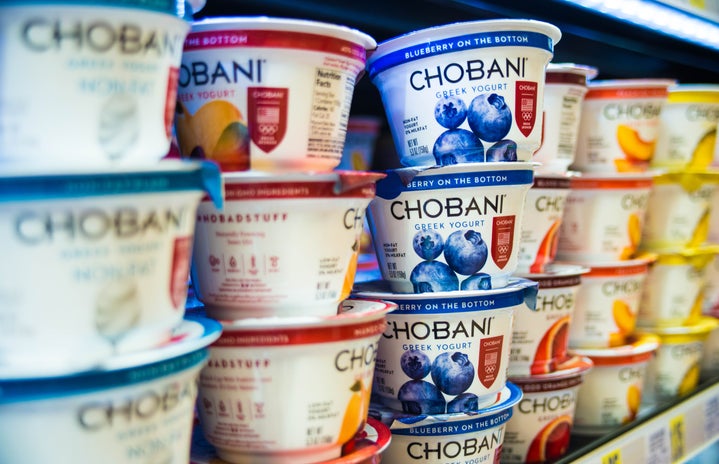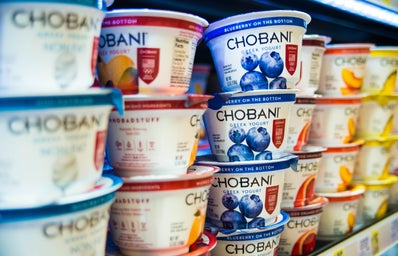What are probiotics, anyway?
Probiotics are a great way to help boost your health and immune system. Simply put, they are living microorganisms (like bacteria or yeast) that are actively working in your gut (and especially in your large intestine). Although they do have many health benefits, probiotics are not vitamins, though some supplements incorporate both in the same product. When you take probiotics, you are not introducing completely foreign substances to your body; you are simply supplementing the bacteria that is already present in your gut, which allows your gut to work more efficiently.
CFUs? What are those?
Looking at the labels on probiotics can be admittedly intimidating. What the heck are CFUs? And why is having billions of them in a serving a good thing? CFUs are ‘colony forming units,’ which is a really gross way of saying that they’re the living bacteria that actually help repair your gut. That might sound kind of gross too, but they are friendly! They actively work to heal imbalances in your gut, and the more of them that there are, the quicker they can get to work. In short, the higher the CFU, the more bacteria are in the probiotic supplement and the more dramatic of an effect they are going to have on your gut. The amount of CFUs in probiotic supplements typically ranges from 500 million to 50 billion, and many supplements have 10 to 20 billion CFUs.
Are probiotics really that beneficial?
The short answer? Yes! Probiotics can help with many things, from boosting your immune system to helping digestion to protecting you from other bacteria that are actually harmful. It can also help stop both diarrhea and constipation. On top of this, there are also physical health benefits, like how it can help reduce acne. Overall, probiotics are very helpful, and they have been growing in popularity recently. Because your gut is such an important part of your body, keeping it healthy is especially important. There is currently research being published about how people’s guts and their brains are connected by nerves, meaning that what goes on in the gut can have a direct impact on your mood and emotions. So, yes! Probiotics, along with a healthy diet, are extremely important to your overall health and well-being.
Can they be dangerous?
To be clear, probiotics are not generally considered dangerous. They have very good health benefits, and there is a very low risk of suffering from any sort of harm. That being said, there can be some side effects such as bloating, gas, or an upset stomach. Most people don’t have negative side effects, but when they do, it is typically caused by large doses of probiotics, especially if your body is not at all used to them. In the short term, some people might have negative side effects, but the long term produces benefits. Think of when you did your first workout after a couple of months of not exercising, and how your body felt stressed and exhausted; those effects were temporary, and your body came out stronger because of it. It is the same concept with probiotics. However, it is still important to consider the risks before diving straight in.
How do you incorporate them into your diet?
Learning about probiotics is one thing, but what about actually getting down to business and trying them out? The world of probiotics can be an intimidating one to explore, especially because there are hundreds and thousands of different brands and products to choose from. While this can scare people off, it’s also a major blessing. Probiotics are not a one-size-fits-all; what one person enjoys might not work for someone else. That being said, there are several different methods you can look into to see what works best for your lifestyle. Probiotics are typically taken on a daily basis, though this depends on the form of the probiotic. For example, most capsules are designed to be taken once per day, but people do not usually eat foods high in probiotics on a strict day-to-day basis. The three most popular ways to incorporate them into your diet are through gummies, capsules, and the all-natural way: food!
- Probiotic gummies: This is a great way for beginners to start diving into the world of probiotics. It’s easy to pop some in your mouth with breakfast, and most gummies are flavored. Depending on the brand, you can choose orange, grape, berry, or any other flavor. One downside of probiotic gummies is that the CFUs are typically lower, so they might not be as potent. However, this could also be seen as a plus by beginners who want to start small and work their way up. Many gummy probiotics also incorporate other vitamins into their gummies, which can be a great way to multitask your health.
- Probiotic capsules: The major upside of probiotic capsules is that they can pack a major amount of CFUs in a single capsule. This means that they are extremely powerful and effective. That being said, you don’t exactly have to jump for the capsules with 50 billion CFUs unless you’re looking for a specific result. The results you see in yourself should be valued more than a number count.
- Probiotics in food: Finally, let’s talk about how to get your daily dose of probiotics in something that we already eat every day: food! Capsules and gummies are great ways to get probiotics, but they might not be right for everyone. Sometimes, all you want is to sit down and eat a yogurt knowing that you’re both satisfying your cravings and feeding your gut. Many yogurts have probiotics in them, so there are many to choose from. Kombucha is also high in probiotics, and there are practically an infinite number of flavors to choose from. Probiotics can also be found in foods like kimchi, miso, and sauerkraut, though some of them might be more of an acquired taste.
Will probiotics really solve all my problems?
Now that all that is said and done, there is one more thing to discuss, and that is the fact that probiotics are not going to magically turn your gut from an ugly duckling to a beautiful swan with a snap of your fingers. They are not a one-stop shop that will fix all your health-related issues at once. Taking them isn’t going to strengthen your immune system in an instant or retransform your gut overnight. In today’s day and age, people are obsessed with the idea of an overnight transformation, Korean skincare that vanishes your acne after just one use, and weight loss transformations that only require five minutes of exercise a day. However, these ‘quick fixes’ rarely, if ever, grant the benefits that they promise. People want immediate results and in their pursuit of always finding something quicker and ‘better,’ they’ve completely lost sight of the fact that the only way to achieve their goals is by playing the long game. Health doesn’t happen overnight. Healthy eating habits take time and effort to build, and probiotics are one step toward a happy gut and a healthy life.


